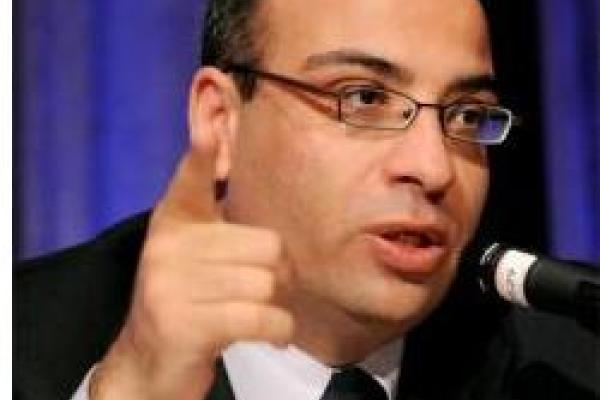
Mehdi Khalaji is a senior fellow at The Washington Institute for Near East Policy, focusing on the politics of Iran and Shiite groups in the Middle East. A Shiite theologian by training, Khalaji has also served on the editorial boards of two prominent Iranian periodicals and produced for the BBC as well as the U.S. government's Persian news service.
From 1986 to 2000, Khalaji trained in the seminaries of Qom, the traditional center of Iran's clerical establishment. There he studied theology and jurisprudence, earning a doctorate and researching widely on modern intellectual and philosophical-political developments in Iran and the wider Islamic and Western worlds. In Qom, and later in Tehran, Khalaji launched a career in journalism, first serving on the editorial board of a theological journal, Naqd va Nazar, and then the daily Entekhab. In addition to his own writing, he has translated the works of the humanist Islamic scholar Muhammad Arkoun.
In 2000, Khalaji moved to Paris where he studied Shiite theology and exegesis in the Ecole Pratique des Hautes Etudes. He also worked for BBC Persian as a political analyst on Iranian affairs, eventually becoming a broadcaster for the Prague-based Radio Farda, the Persian-language service of the U.S. government's Radio Free Europe/Radio Liberty. At Radio Farda, he produced news, features, and analysis on a range of Middle Eastern, Iranian, and Islamic issues.
Khalaji is the author of several books, including The New Order of the Clerical Establishment in Iran (H&S Media, 2011), written in Farsi. His forthcoming book is A Political Biography of Ayatollah Ali Khamenei, Iran’s Supreme Leader.
Khalaji also writes a bilingual English and Persian blog, MehdiKhalaji.com.
Synopsis
By declaring Shiism the official state religion and granting the Shiite jurist (ayatollah) guardianship over the government, the Islamic Republic has changed the nature of the religious institution and religiosity of Iranian society. On the one hand, it has empowered religious institutions; on the other, it has deprived them of their independence and their civil nature. The Islamic Revolutionary Guard Corps is cementing its political and economic power over both the clergy and the country. This might possibly lead to the Islamic Republic’s secularization. However, the fact that the Islamic Republic is becoming more militarized and less clerical makes Shiism still the central theoretical and practical issue surrounding the democratization of Iran.
This event is co-sponsored by Honors and Scholars, Department of Political Science, and Middle East Studies Center.
